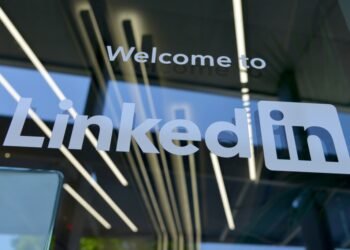Fiverr founder and CEO Micha Kaufmann didn’t pull any punches when he posted a note that initially went out on an internal email to his X account about AI and the future of the company.
“I’ve always believed in radical candor and despise those who sugarcoat reality to avoid stating the unpleasant truth. The very basis for radical candor is care. You care enough about your friends and colleagues to tell them the truth because you want them to be able to understand it, grow and succeed,” said Kaufmann.
“So here is the unpleasant truth: AI is coming for your jobs. Heck, it’s coming for my job, too. This is a wake-up call. It does not matter if you’re a programmer, product manager, data scientist, lawyer, customer support rep, salesperson or a finance person — AI is coming for you.
“You must understand that what was once considered ‘easy tasks’ will no longer exist; what was considered ‘hard tasks’ will be the new ‘easy,’ and what was considered ‘impossible tasks’ will be the new ‘hard.’ If you do not become an exceptional talent at what you do, a master, you will face the need for a career change in a matter of months. I am not trying to scare you. I’m not talking about your job at Fiverr. I’m talking about your ability to stay in your job in the industry.”
A pretty unequivocal approach to “internal” communications and a stark wake-up call for anyone at Fiverr who was unclear about what they need to do to prosper at the freelance marketplace.
This week, BarkBox founder and CEO Matt Meeker apologized on social media for a leaked chat from its internal Slack work collaboration platform about the dog-toy company pausing marketing of Pride merchandise given the current political and cultural climate.
“I apologize. A few days ago, an internal message from a Bark team member was released on social media. The message was disrespectful and hurtful to the LGBTQIA+ community, and as the CEO of Bark, I’m responsible for that.
“I do not agree with the content of the message. It wasn’t good. It doesn’t reflect our values, and I’m deeply sorry that it happened.
“The Pride collection is still available and has been available on our site since the day we launched it. We stand by our products. They continue to be placed prominently on our homepage and throughout the website. We have no plans to remove them.”
Meeker apologized unequivocally, took personal responsibility as the company leader, affirmed that BarkBox continued to support the Pride community and reaffirmed the dog-toy business’ values. He accepted that a statement can’t fully rebuild trust and connections, but hoped that a sincere apology would be a good start.
Cynics might say that it’s applying a Band-Aid to a situation that has already spiraled out of control, or that trust has been fundamentally broken. But as a crisis response, it seemed genuine, authentic and effective to me — likely to draw a line under the story in days rather than extending it to weeks and months like Target and AnheuserBusch.
It certainly compares well with BP’s then-CEO Tony Hayward telling reporters he “wanted his life back” in the midst of an oil spill crisis in the Gulf of Mexico in 2010 that killed 11 workers.
We shall see how the BarkBox situation plays out.
But the wider trend here, exacerbated by the COVID-19 pandemic period, is that CEOs are increasingly the focal point of internal and external communications, aided by their comms departments and agency counselors.
Organizations can choose to put out messaging directly on social media, even if it is largely aimed at employees and internal stakeholders, like Meeker did.
They can repeat internal messages on social media, as Fiverr’s Kaufman did.
Or they can put out a message internally, knowing full well that the communication will leak out externally, and prepare to respond accordingly.
The bottom line is that internal communication is now very much the first line of external PR.
The key in all cases is to be transparent and in line with your mission, authentic to your brand, and honest and truthful in your messaging.
Those techniques and playbooks are still being written. But it’s fascinating to see how comms teams and their C-suite executives are handling it.














